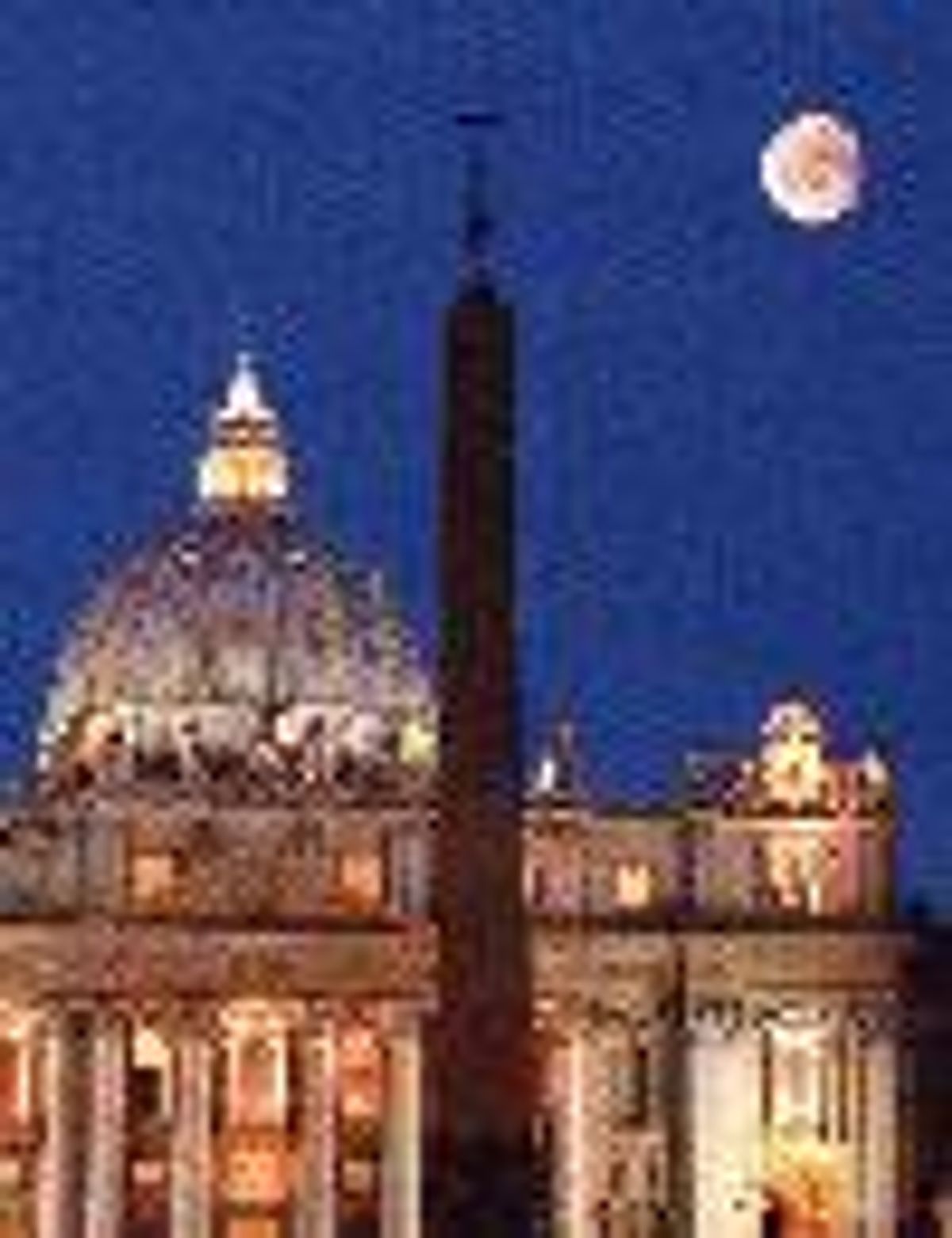The Reverend Fred
Daley, a gay Roman Catholic priest, had grown
increasingly disturbed by Vatican pronouncements over the
years that gay men were unfit for the clergy.
Then the situation escalated--some church
leaders suggested that gays were responsible for the
clergy sex abuse crisis. Daley was so angry, he did
something last year that almost no other gay Catholic cleric
in the country has done: He came out to his
bishop,his parishioners, and his entire community
to show that gays are faithfully working in the church.
"I'm as much a member of the church as anybody
else," said Daley, of St. Francis de Sales Church in
Utica, N.Y., who was ordained in 1974 and said he has
never considered leaving the priesthood. "I love being
a priest."
Researchers have estimated that thousands of gay
clergy across the United States have dedicated their
lives to a church that considers them "intrinsically
disordered" and prone to "evil tendencies." Soon the
Vatican will back up that teaching with a document
that could set new restrictions on candidates for the
priesthood--a pronouncement U.S. bishops may discuss
in private during their national meeting starting
Monday in Washington, D.C.
Yet through decades of consistent signals from
the Vatican that they are unwelcome, gays have
continued to join the priesthood, raising questions
about how they can devote themselves to an institution that
so questions their ability to serve.
"As I have through the years become more
comfortable with who I am, it seemed the institutional
church and its decrees and its pastoral letters from
the Vatican seemed more harsh and almost mean-spirited,"
said Daley, who didn't realize he was gay until after he was
ordained and has remained celibate. "But what I find
on the grassroots level is vibrant, alive communities
of faith in my everyday ministry."
Several other gay clergy, who spoke on condition
of anonymity because they feared retribution from
their superiors, said in recent interviews that they
were only vaguely aware of Vatican pronouncements on gay
priests when they applied. "I was pretty naive," said a West
Coast priest, who began studying for ordination in the
1980s. "I knew the church had ill feelings about it,
but I didn't know a whole lot else."
A key 1961 Vatican document on selecting
candidates for the priesthood made clear the church's
position that gay men should be barred. But
that instruction and others that followed have clearly not
been enforced in many American seminaries and
religious communities. Estimates of the number of gays
in U.S. seminaries and the priesthood range from 25%
to 50%, according to a review of research by the Reverend
Donald Cozzens, a former seminary rector and author of
The Changing Face of the Priesthood.
A gay priest who had been worried that he would
be expelled if seminary administrators discovered his
sexual orientation said his disclosure was welcomed
instead. He said his spiritual director told him, "I'm
grateful for your honesty."
Historically, many gays and lesbians chose
religious life partly because it was a socially
acceptable alternative to marriage and protected them
from questions about why they were single, Cozzens said. But
the gay priests interviewed for this story insisted
they were not hiding out. They said they found
religious communities where they could be relatively
open with fellow clergy.
"My superiors encouraged me to keep talking
about it as a way to help me understand how to better
live a celibate life in a real healthy way," said a
gay priest who attended seminary in the 1980s and
refused further identification.
Such support may be harder to find after the new
Vatican guidelines are released. The Italian newspaper
Il Giornale reported Friday that the
document, to be issued by the Congregation for
Catholic Education, will bar from seminary men who "support"
gay culture or have "deeply rooted" gay tendencies. The
newspaper said the instruction will be made public
November 29.
The document would not apply to gays who have
already been ordained, but gay priests said it would
challenge anew their decision to work within a church
whose pronouncements they consider discriminatory.
Anticipating the Vatican pronouncement, some gay
priests are discussing collectively staying away from
pulpits some Sunday to show how much the church relies
on them. Other priests said they were considering revealing
their sexual orientation to parishioners. Some are
contemplating "outing" gay bishops who would be called
upon to enforce the new guidelines.
Any new restrictions would be "discouraging,"
said the West Coast priest, but "I prefer to work for
justice in this area within the church structure."
Another gay priest said the new restrictions would
amount to the church telling him "to sit on the back of the
bus.... But this is my family. You don't leave your
family if there's a problem. I feel God has called me
here, and that takes precedence over everything else."
(AP)



















































































